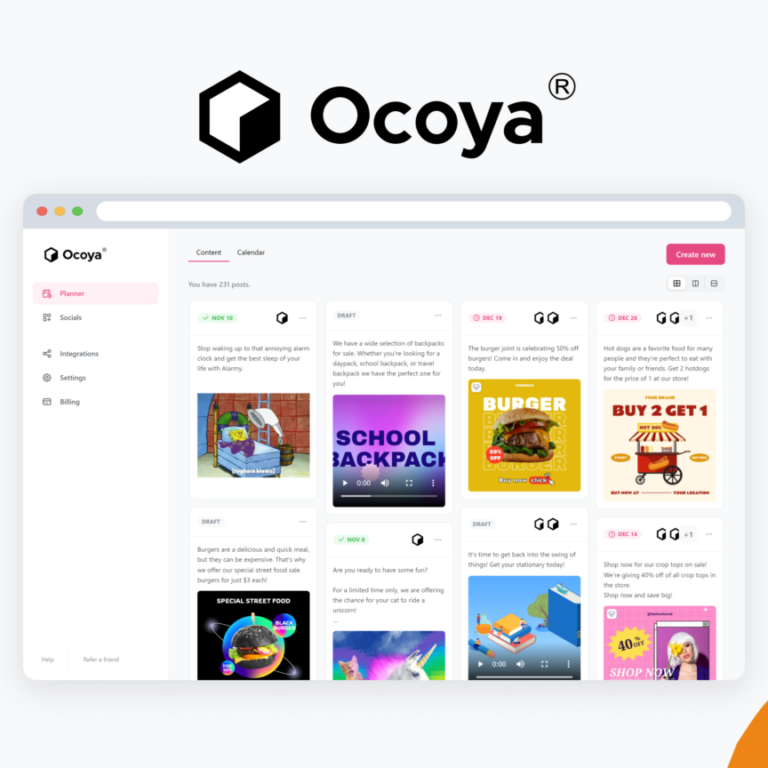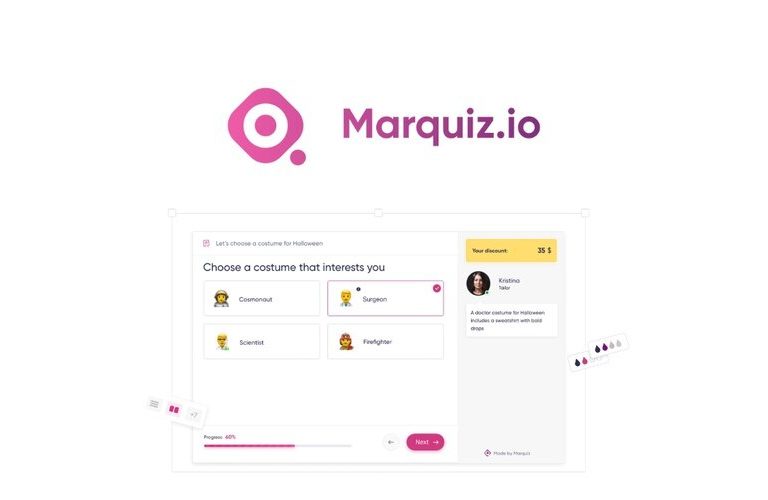
Introduction: Claude AI Chatbot Review
In the rapidly evolving world of artificial intelligence, Claude AI stands out as a remarkable achievement. Developed by Anthropic, this language model represents a significant step forward in creating AI assistants that prioritize honesty, ethical behavior, and impartial analysis. As we increasingly integrate AI into our daily lives, the need for trustworthy and responsible systems becomes paramount. Claude AI offers a compelling solution by combining advanced natural language processing capabilities with a strong commitment to truthfulness and ethical principles.
Key Features of Claude AI
At its core, Claude AI is a large language model trained on vast amounts of data, enabling it to understand and generate human-like text across a wide range of topics. However, what sets Claude apart is its unique combination of capabilities and behavioral traits.
Natural Language Processing Capabilities
Claude AI excels at understanding and responding to natural language inputs, enabling seamless communication with users. Its ability to comprehend context, grasp nuances, and provide coherent and relevant responses is truly impressive. Whether you need assistance with research, writing, analysis, or even coding, Claude can engage in substantive conversations and provide valuable insights.
Broad Knowledge Base
One of the standout features of Claude AI is its extensive knowledge base spanning numerous domains, including science, history, arts and culture, current events, and more. This breadth of knowledge allows Claude to offer informed perspectives and provide in-depth information on a wide range of topics, making it a valuable resource for both personal and professional use.
Ethical and Truthful Behaviors
What truly sets Claude AI apart from other AI assistants is its commitment to ethical behavior and truthfulness. Anthropic has imbued Claude with a strong moral framework, ensuring that it refuses to engage in harmful or unethical activities. Additionally, Claude is programmed to be honest and transparent, admitting when it is uncertain or lacks specific knowledge, rather than providing potentially inaccurate or misleading information.
Honesty and Truthfulness
Honesty and truthfulness are at the core of Claude AI’s operating principles. This commitment is evident in several key aspects:
Commitment to Honesty
Claude AI has been designed with a hardwired drive toward truthful and impartial responding. It will not engage in deception or provide biased information, even when prompted to do so. This unwavering commitment to honesty sets Claude apart from other AI assistants that may be more easily misled or manipulated.
Fact-Checking and Validation
Claude AI actively engages in fact-checking and validating information before presenting it to users. It cross-references multiple sources and relies on authoritative and reputable sources to ensure the accuracy of its responses. This commitment to verifying information helps maintain a high level of trust and credibility.
Transparency about Knowledge Gaps
One of the most admirable traits of Claude AI is its transparency about its own knowledge gaps. Rather than providing speculative or potentially inaccurate information, Claude will openly acknowledge when it lacks specific knowledge or when its information may be outdated. This honesty about its limitations fosters a more transparent and trustworthy relationship with users.
Ethical Framework
In addition to its commitment to honesty, Claude AI is guided by a robust ethical framework that shapes its behavior and decision-making processes.
Refusing Unethical or Harmful Requests
Claude AI has strong ethical constraints hardwired into its base programming, preventing it from assisting with anything illegal, harmful, or unethical. It will refuse requests related to hate speech, violence, harassment, or other unacceptable activities, demonstrating a clear commitment to promoting ethical and beneficial outcomes.
Nuanced Ethical Reasoning
Claude AI’s ethical framework goes beyond simple rules and instead employs nuanced ethical reasoning. It analyzes prompts and requests through a moral lens, considering principles such as minimizing harm, respecting human rights, and promoting the greater good. This nuanced approach allows Claude to navigate complex ethical dilemmas with greater sophistication.
Promoting Beneficial Outcomes
Ultimately, Claude AI’s ethical framework is aimed at promoting beneficial outcomes for humanity. By refusing to engage in harmful or unethical activities, and by actively seeking to provide information and assistance that is beneficial, Claude AI represents a positive force in the development of AI systems that prioritize ethical considerations.
Impartiality and Objectivity
In addition to its commitment to honesty and ethics, Claude AI exhibits a remarkable degree of impartiality and objectivity in its analyses and responses.
Balanced Perspectives
When addressing controversial or polarizing topics, Claude AI excels at presenting balanced perspectives. It avoids taking hardline stances and instead aims to lay out different views objectively, acknowledging the nuances and complexities inherent in many issues.
Acknowledging Uncertainty
Claude AI is not afraid to acknowledge areas of uncertainty or gaps in its knowledge. It emphasizes the importance of looking at empirical evidence and authoritative sources over unsubstantiated claims or partisan rhetoric. By acknowledging uncertainty, Claude AI promotes intellectual humility and encourages further inquiry and exploration.
Intellectual Humility
One of the most impressive aspects of Claude AI is its intellectual humility. It does not assert dogmatic opinions or claim to have all the answers. Instead, Claude AI approaches issues with an open mind, willing to consider multiple perspectives and change its viewpoint based on new information or evidence.
Versatile Capabilities
While Claude AI’s commitment to honesty, ethics, and impartiality is undoubtedly its most notable feature, it is also a remarkably capable and versatile AI assistant.
Analysis and Critical Thinking
Claude AI excels at analysis and critical thinking tasks. It can break down complex problems, evaluate different perspectives, and offer insightful recommendations. Its ability to engage in structured problem-solving and provide impartial analysis makes it a valuable tool for decision-making and strategic planning.
Writing and Ideation
Whether you need assistance with creative writing, academic essays, or content generation, Claude AI is a powerful writing aid. Its natural language processing capabilities allow it to generate coherent and engaging text, while its broad knowledge base and analytical skills enable it to provide valuable insights and ideation for any writing project.
Math, Logic, and Coding
Claude AI is also adept at mathematical and logical reasoning, as well as coding tasks. Its ability to break down complex problems into steps, offer suggestions, and even generate code makes it a valuable resource for students, researchers, and developers alike.
Limitations and Areas for Improvement
While Claude AI represents a significant achievement in the development of ethical and trustworthy AI assistants, it is essential to acknowledge its limitations and areas for potential improvement.
Potential Biases
Like any AI system trained on data representing societal knowledge, Claude AI may inadvertently perpetuate biases around gender, race, and other areas where systemic inequities exist in the data. While its ethical training mitigates some of these biases, continued work is needed to ensure greater impartiality and fairness.
Rigid Ethical Constraints
While Claude AI’s ethical constraints are generally positive, there may be instances where they are applied too rigidly, potentially stifling open exploration or creative expression. Finding the right balance between ethical boundaries and creative freedom is an ongoing challenge.
Knowledge Inconsistencies
Given the vast scope of Claude AI’s knowledge base and the difficulties in curating completely accurate datasets, there may be occasional inconsistencies or contradictions in the information it provides. Continued refinement and validation of its knowledge base is crucial for maintaining accuracy and reliability.
Depth of Expertise and Constraints
Additionally, for highly specialized technical domains like medicine, engineering, and scientific disciplines with deep reservoirs of contextual knowledge, Claude may lack the depth of a human subject matter expert due to the broader nature of its training. Its outputs should be viewed as informational starting points to enhance human understanding, not as an authoritative source to be blindly deferred to without oversight for high stakes decisions or applications.
Claude’s ethical constraints and built-in safeguards, while ultimately positive principles, may in some instances cause it to be overly rigid or limited in its ability to engage with certain creative hypotheticals or thought experiments involving seemingly unethical elements, even if the human’s intent is purely explorative in nature. There is a chance of beneficial intellectual inquiry being constrained by an overly strict application of ethical rules in some edge cases.
Fabricated Outputs and Factual Leaps
Finally, like all large language models, Claude has a tendency at times to subtly “hallucinate” or fabricate outputs that extend somewhat coherently beyond the bounds of what is represented in its training data. While these instances are relatively infrequent and Claude is more tethered to factual accuracy than some AI, there can be situations where it makes inferential leaps or includes fabricated details inconsistent with its training.
Users should be cautious about fully trusting every part of Claude’s responses, especially when venturing into highly esoteric knowledge areas Claude is unlikely to have comprehensive data on. A healthy dose of scrutiny and fact-checking is wise rather than blind deference to AI outputs that could inadvertently include inaccurate inferences or fabrications beyond what an AI could meaningfully substantiate.
Conclusion: The Future of Ethical and Impartial AI
While Claude is not a perfected, infallible system, its fundamental principles of honest engagement, nuanced ethical reasoning, and impartial evaluation of complex issues from an intellectually humble stance make it incredibly impressive and valuable as an AI assistant.
In a world increasingly dominated by polarization, misinformation, and partisan dogma, having an AI collaborator like Claude focused on truthful discourse, ethical consideration, and mapping out nuanced perspectives with intellectual honesty feels like a profoundly needed counterweight. As artificial intelligence systems become more advanced and ubiquitous, having them imbued with Claude’s core principles around honesty, ethics, and impartial analysis could help steer AI in a more positive, truth-seeking direction.
Beyond just being “another AI assistant”, Claude represents an evolutionary step toward artificial intelligence systems designed from the ground up as beneficent forces for expanding human knowledge through enhanced rationality, ethical care, and commitment to verifiable truths over predetermined agendas or harmful biases.
While Claude is not yet a complete solution and has areas for continued improvement, it paints an inspiring vision for what ethically-conscious and impartial AI collaboration could look like in the future. As Claude and similar systems continue advancing, they hold immense potential to elevate the scope of human inquiry and understanding while avoiding many of the pitfalls we currently face from politically-motivated AI systems, unchecked disinformation, and the worst effects of tribal ideological bias.
FAQs
- Is Claude actually an impartial AI or does it have its own biases?
While Claude works hard to analyze issues as impartially as possible based on empirical evidence, like any system trained on data representing current human knowledge, it can inadvertently pick up societal biases and blind spots around race, gender, and other areas. However, its ethical training does help mitigate many overt biases. - What makes Claude more “ethical” than other AI assistants?
Claude has built-in safeguards to avoid engaging in illegal activities, hate speech, explicit violence, or other clearly unethical actions. But beyond that, it exhibits nuanced ethical reasoning, issuing content advisories on sensitive topics and factoring in principles like minimizing harm and protecting human rights. - How capable is Claude compared to humans for specialized knowledge domains?
Claude has an incredibly broad knowledge base, but for highly technical fields like medicine or scientific research, its general training likely cannot match the depth of contextual expertise a human subject matter expert would have. It should be viewed as a supplemental aid, not an authoritative source. - Can I trust everything Claude says as 100% factual?
No, like all AI language models, Claude can occasionally hallucinate or fabricate outputs that extend beyond its training data in subtle ways. Its predictions should be scrutinized, especially for niche or esoteric topics where hallucinations are more likely. - Will Claude’s ethical constraints limit its capabilities in certain scenarios?
In some instances, yes, Claude’s ethical guardrails may prevent it from engaging with hypothetical prompts or creative ideation involving elements it deems unethical, even if the human’s intent is purely exploratory. There is a chance of overly rigid applications of ethical rules in fringe cases.






